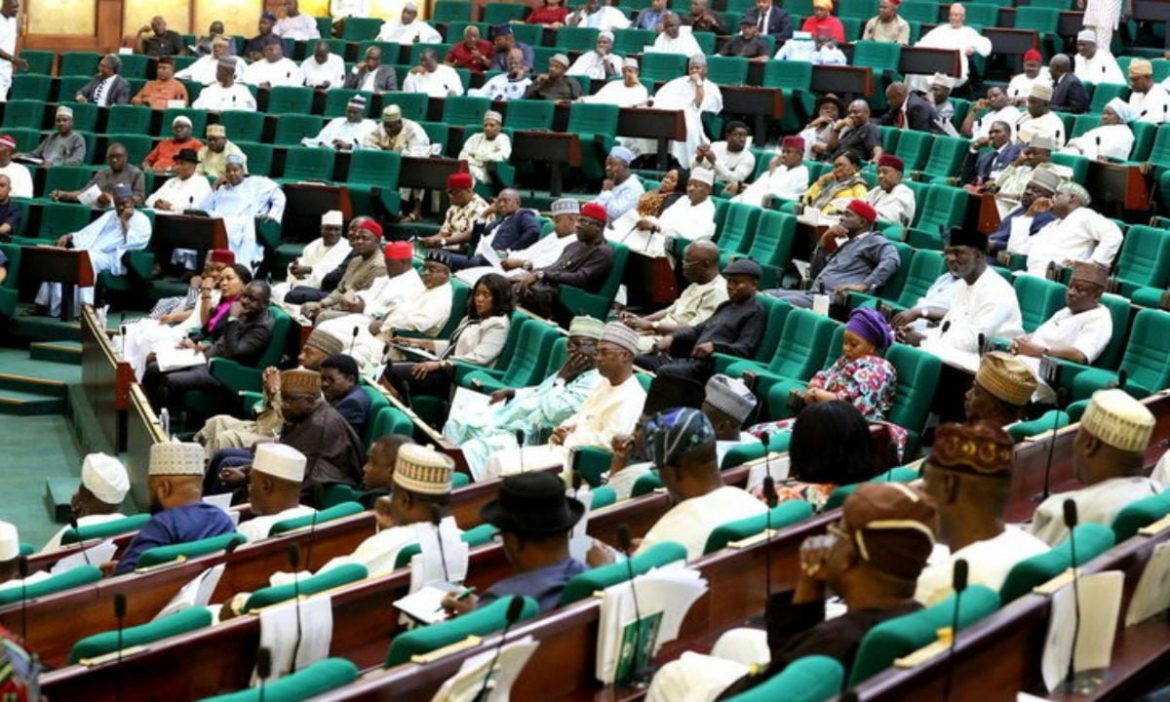This followed the adoption recently on the floor of the Green Chamber in plenary, “A bill for an Act to amend the Code of Conduct Bureau and Tribunal Act, 2004 to expand the right of public officers to only engage in farming or management of farms but to also engage in charitable or philanthropic ventures and for related matters.”
The bill sponsored by the lawmaker representing Kwande/Ushongo Federal Constituency, Benue State, Terseer Ugbor is seeking an amendment to Section 6 (b) of the Principal Act.
To avoid conflict of interest, the section restricts public office holders from engaging in other meaningful ventures except farming or management of farms.
In the proposed amendment, a new clause (ii) is now included to allow public officeholders to engage in “Charitable or philanthropic ventures or in the management of any charitable organisations.”
Speaking with our correspondent on Thursday in Abuja, Ugbor stated that the proposed legislation aims to enable government officials to engage in charity works that would benefit the lives of other Nigerians.
He said, “This bill seeks to amend the Code of Conduct Bureau and Tribunal Act, 2004, to make it more responsive to the needs of public officers to undertake charitable or philanthropic ventures to empower and enhance the lives of other citizens and to maximize their philanthropic potentials for the greater good of the public.”
In a separate telephone interview with our correspondent, the Benue lawmaker justified the need to have the CCBT Act amended.
He said, “All over the world, public service is established to develop individuals with an orientation for public good and integrity. Public servants are encouraged to engage in volunteerism, charity, and philanthropic activities, leveraging their experience, network, and goodwill to attract support and possibly funding for community development ventures and engagements.
“The current Code of Conduct legislation does not provide this option for public servants. By restricting public servants to farming alone, many individuals cannot explore social ventures and explore their potential for public good.
“I believe that this will help foster a mindset of civic duty towards public funds and entrench a social responsibility in the Nigerian public sector. It will also help many public servants retire productively and contribute to their communities, even in retirement.”
Move prone to corruption- Okei-Odumakin
Meanwhile, foremost pro-democracy activist, Joe Okei-Odumakin has questioned the rationale for the proposed amendment of the CCBT Act, noting that if successful, public officers might be enmeshed in corrupt acts.
In an interview with this medium, the founder, Women Arise said, “Allowing public office holders, to run charitable organisations which in most cases, are non-governmental, is a recipe for corruption, in a system, where transparency and accountability, has almost completely been eroded from governance.
“Allowing such persons to operate charitable organizations, may lead to giving undue advantage, to such public officials, while it may also, become a conduit pipe for perpetrating corruption. The business of full-time, public service and governance, as practised in Nigeria, is such a serious one, that shouldn’t ordinarily allow anyone, to contemplate running another enterprise, that may be time-consuming. The proposed amendment should be jettisoned,” she advised.
Similarly, a chieftain of the Arewa Consultative Forum, Anthony Sani, has faulted the proposed move to allow public officeholders run charitable organisations.
“I do not buy the idea of allowing public officers to own and run any form of business concerns, whether public-spirited or not. This is because even the farms owned by public officers have been abused as they turn out to be conduit pipes which public officers use for hiding their malfeasance,” he said.
Sani, a one-time Secretary General of the ACF also added that it was the same practice of allowing healthcare workers to own clinics that destroyed the nation’s health sector.
“Allowing health workers to own hospitals and clinics for their private practices has destroyed the effective performance of public hospitals and clinics,” he added.
Only constitutional amendment can alter CCBT Act-Ozekhome
On his part, constitutional lawyer and rights activist, Mike Ozekhome has called on the legislative chamber to use the opportunity of the constitutional review window to address the issue.
Speaking with our correspondent on the matter, the Senior Advocate of Nigeria noted that “The National Assembly cannot amend the constitution through the backdoor.
“Section 9 of the 1999 Constitution (as amended) provides that public officers can only be involved in farming, nothing more. If and where they need more power leverage, only an amendment of the constitution can cure the present scenario. You cannot use an Act of Parliament to amend provisions of the Constitution,” he said.



